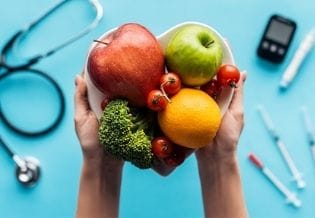Data Archiving for International Journal of Nutrition
A clear, author friendly framework for sharing data, protocols, and analysis materials that strengthen reproducibility and increase the visibility of nutrition research.
Journal Metrics
Consistent, transparent publishing metrics help authors plan submissions and track impact. The following benchmarks are applied across the International Journal of Nutrition.
Journal At a Glance
International Journal of Nutrition is a peer reviewed, open access journal focused on clinical nutrition, public health nutrition, dietary assessment, and food science. The journal emphasizes transparent methods, data availability, and rapid dissemination for real world impact.
- ISSN: 2379-7835
- Open access publishing model
- DOI assigned to every article
- Global readership and indexing distribution
Why Data Archiving Matters
Nutrition research drives clinical practice, public health policy, and food system decisions. Transparent data archiving ensures that results can be verified, reanalyzed, and extended, which improves trust and accelerates impact.
IJN supports responsible data sharing that protects participant privacy while enabling reuse. Authors keep ownership of their data while granting access under appropriate permissions.
What to Archive
Primary Data
De-identified datasets, measurements, and observational records that support the main findings.
Protocols and Methods
Study protocols, sampling methods, questionnaires, and calibration details.
Code and Analysis
Statistical scripts, model outputs, and workflow documentation.
Supplementary Materials
Data dictionaries, codebooks, and readme files that explain variables.
Permissions and Sensitive Data
If your research includes human participants or clinical records, remove direct identifiers and follow institutional guidance before sharing. When full sharing is not possible, provide controlled access or a data use statement.
- State any restrictions clearly in the data availability statement.
- Ensure third party datasets are shared only with permission.
- Use standardized metadata so datasets remain usable over time.
Repository Selection and Licensing
Choose a repository that provides stable links, long term access, and clear licensing options. Discipline specific archives are ideal for domain visibility, while institutional repositories provide compliance support for funder mandates.
- Select a license that matches reuse expectations and ethical constraints.
- Include a readme file that explains file structure and variable names.
- Use non-proprietary formats when possible to preserve access.
Recommended Archiving Workflow
Prepare
Clean the dataset, create a codebook, and verify that files open correctly.
Deposit
Upload to a recognized repository or institutional archive and secure a persistent link.
Describe
Add a clear data availability statement in the manuscript with access details.
Publish
After acceptance, confirm that the final link and license are visible.
Data Availability Statement
Every IJN article should include a data availability statement that explains where data can be found, under what conditions it can be accessed, and any ethical limitations. This statement is indexed alongside the article and helps readers locate supporting evidence.
- Public repository with DOI or stable link
- Embargo period if required by funder policy
- Controlled access contact point for sensitive data
- Statement when data cannot be shared with reason
Documentation and Quality Checks
Well documented data increases reuse and reduces the need for follow up questions. Provide clear variable definitions, units, and analytic steps so other researchers can interpret results accurately.
- Include version numbers for code and analysis scripts
- Confirm that tables in the manuscript match archived data
- Describe any preprocessing or exclusions in the readme
Benefits for Authors
Archived data increases citation potential, supports collaboration, and strengthens the credibility of nutrition findings. It also helps authors meet grant reporting requirements and aligns with international open science expectations.
Data Citation and Credit
Citing datasets helps authors receive recognition for sharing and enables others to track reuse. Include a data citation in the reference list whenever a repository provides a DOI or accession number.
- Use the repository citation format when available
- Link the dataset to the article DOI for cross reference
- Update citations if datasets are revised or expanded
Frequently Asked Questions
Do I have to share raw data?
Share de-identified data when possible. If restrictions apply, use controlled access and explain the limitations.
Can I use an institutional repository?
Yes. Institutional repositories are acceptable when they provide stable links and metadata.
Does data sharing affect peer review?
Reviewers may request supporting data to verify claims, which often speeds editorial decisions.
What about proprietary tools?
Provide permission documentation and describe any restrictions in the manuscript.


